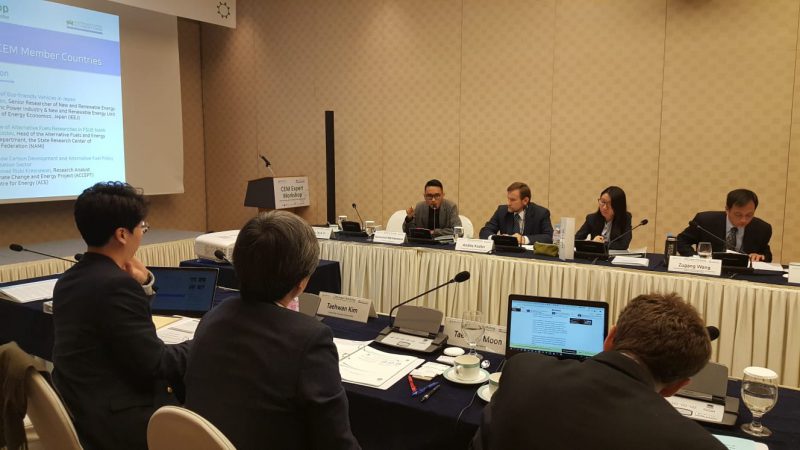Ulsan, 26 April 2019
Ulsan, South Korea – The ASEAN Centre for Energy (ACE) has been invited as one of the speakers by the Korea Energy Economics Institute (KEEI) to present Association of Southeast Asian Nations (ASEAN) status, in particular of Indonesian status on the deployment of eco-friendly vehicles in the Clean Energy Ministerial (CEM) Expert Workshop that took place in Ulsan, South Korea on 25-26 April 2019.
The purpose of this workshop is to ignite the deployment of eco-friendly vehicle among CEM member countries and transforming the cities and towns to be clean, sustainable, and energy-efficient communities, which is also part of the continuation of Sustainable Cities and Eco-energy Towns (SCET) initiatives in CEM8 back in 2018.
With the workshop title “Clean Fuel Policy and Technology in Transport Sector”, this workshop was attended by several representatives from CEM member countries namely South Korea, Japan, China, Russia, and Indonesia as well as another invited International Organizations (IOs) such as International Energy Agency (IEA) and International Partnership for Energy Efficiency Cooperation (IPEEC).
Through their research analyst, Mr. Muhammad Rizki Kresnawan, ACE presented a topic with the title “Indonesia Low Carbon Development and Alternative Fuel Policy in Transportation Sector”. In his presentation, he talked about the status and the potential in ASEAN and Indonesian transportation sectors, also explained the Indonesian roadmap and investment climate of eco-friendly vehicle development in Indonesia.
 ACE Delegation Presenting a Topic at the Clean Energy Ministerial (CEM) Expert Workshop in Ulsan, South Korea
ACE Delegation Presenting a Topic at the Clean Energy Ministerial (CEM) Expert Workshop in Ulsan, South Korea
The workshop had a fruitful discussion with ACE actively involved in the dialogue from the panel. In the end, there is still a long way to boost the deployment of eco-friendly vehicles in some countries.
For example in Indonesia, there is still a lack of supporting systems infrastructure such as the number of recharging stations that need to be added due to a lack of investor interest in this business.
Concluded the discussion, CEM and ACE were agreed that the study and analysis on the business model of recharging stations development are interesting and necessary to drive clean energy transition in the transportation sector, exclusively in Indonesia and possibly for another ASEAN countries.
(MRK) (Credit: KEEI)